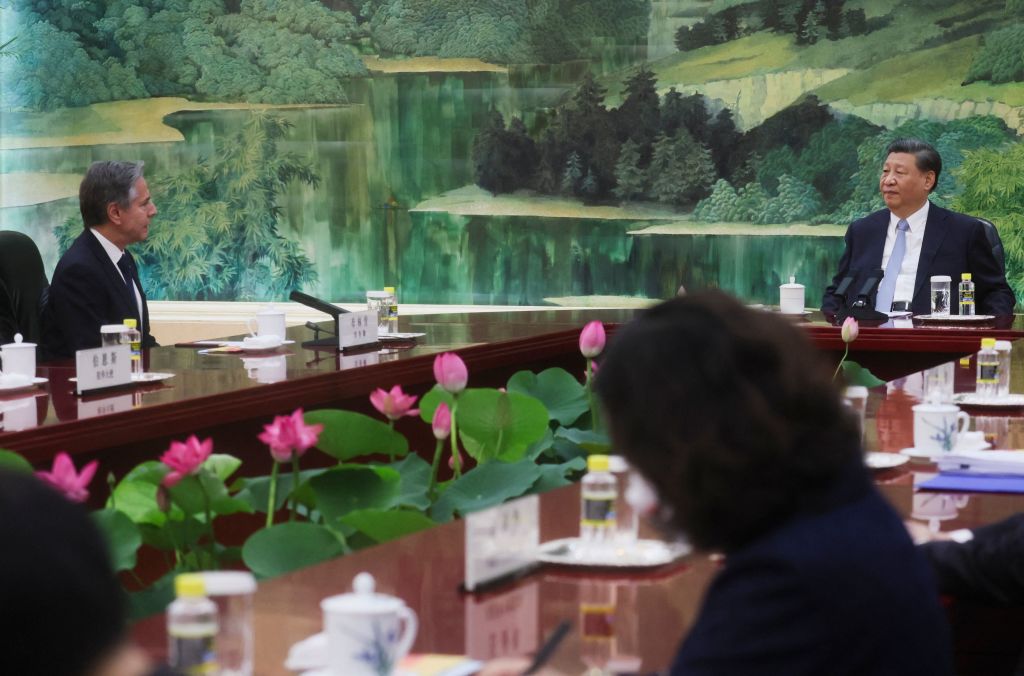
To the extent that Australia’s relations with China are influenced by the state of US–China relations, Secretary of State Antony Blinken’s visit to Beijing in mid-June makes the prospect of a visit to China by Prime Minister Anthony Albanese this year more likely. Blinken’s visit didn’t achieve any breakthroughs. It wasn’t expected to. But it went smoothly, if a little frostily at times, and should act as a brake of some sort on the deterioration of US–China relations. Both sides had recognised that the relationship was at its lowest point in decades and wanted to signal to the rest of the world that they were seeking to relieve some of the tension.
That doesn’t mean, of course, that US–China relations will significantly improve. Structural problems in the relationship remain, and they’re substantial. The key issues are China’s actions around Taiwan and in the South China Sea, US bans on high-level technology exports to China and human rights. Blinken did reaffirm US support for the one-China policy and opposition to Taiwanese independence, and stressed that the US was pursuing de-risking of its economic relations, not decoupling. (The US defines de-risking as securing resilient supply chains for critical technologies, protecting the most advanced technologies with military applications, and investing in its own industrial capacity in critical areas of technology. China clearly doesn’t accept that approach.)
Blinken was unable to secure Chinese agreement to re-establishing military-crisis communication links. Given the severing of military exchanges in recent years, and the potential for military crises to occur in the East and South China Seas, this was a disappointment.
Blinken’s meeting with Xi Jinping was relatively short but important. Had it not happened, only days after Xi met Bill Gates, it would have been a real snub and a bad sign. The meeting was apparently congenial, with both Xi and Blinken stressing the need for more diplomacy. But it was carefully choreographed by the Chinese to signal that Blinken wasn’t meeting Xi on an equal footing. Unlike the usual practice in which Xi meets foreign visitors in the classic horseshoe configuration, which implies some level of equality between the interlocutors, this time Xi sat at the head of a table with Blinken and the Chinese officials sitting opposite one another in positions signalling lower status. That accorded with China’s characterisation of the visit as one sought by the US as a supplicant (a minor point, perhaps, but illustrative of how China seeks to demonstrate the high ground in its relations with the US).
This move to arrest of the downturn in US–China relations is an encouraging development for Australia, and will make Albanese’s decision to visit Beijing a little less vexed when the time comes. Whatever Canberra might say about Australia having an independent foreign policy, China sees it as following the US lead. Thus, bad relations between the US and China will have an impact on how China views Australia. Conversely, better US–China relations will have some positive flow-on effect on how China views relations with Australia. This is a fact of life in alliance and major-power relationships.
A slowdown in the deterioration of US–China relations, while helpful, doesn’t remove all the impediments to a more stable Australia–China relationship. There are significant bilateral issues unrelated to external factors that will need to be addressed to reduce the domestic political complications around a prime ministerial visit. The two main ones are the continued detention in China of Australian citizens Cheng Lei and Yang Hengjun, and the continuing Chinese sanctions on certain Australian exports. For the prime minister to visit China and not achieve some demonstrable progress on these issues would be difficult for him to sell at home. On the positive side, some trade sanctions are already being lifted and further progress shouldn’t be difficult for the Chinese government in the lead-up to an Albanese visit.
However, the cases of the two detained Australians are apparently more difficult for the Chinese government because, it claims, they involve matters of state security. However, more so than trade sanctions, these issues have a personal and emotional character that strikes a chord among many Australians. Without more information about their situation and about the charges they face, and without their at least having access to their families, this will remain a difficult issue that could stand in the way of a successful Albanese visit to China.

